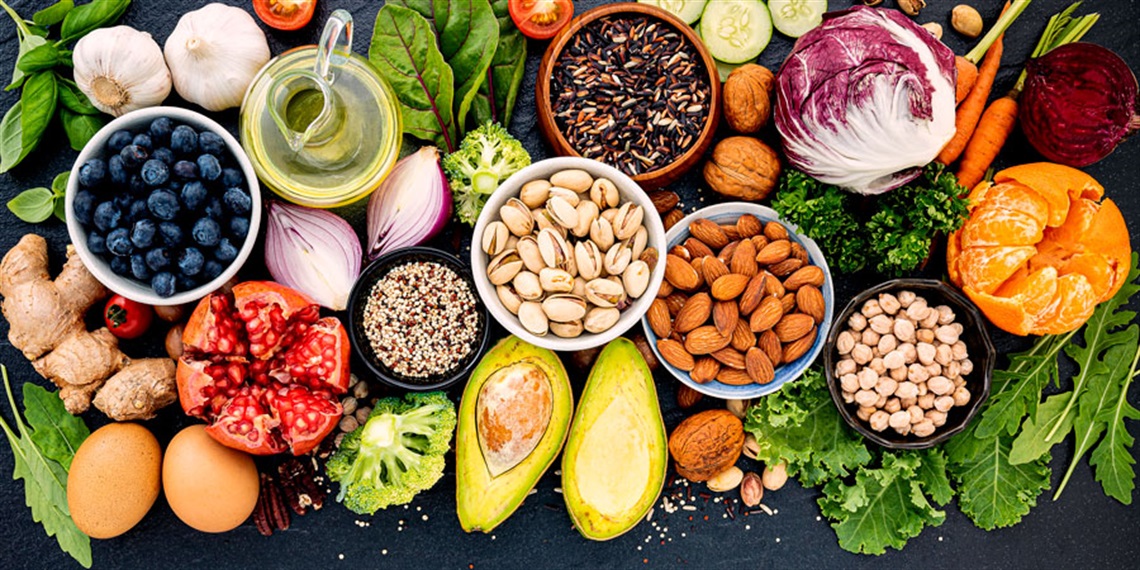How to fuel your body post-strength workout vs cardio workout
Published on 18 October 2021

What you put into your body not only impacts your output during a workout, but also how your body recovers. Aquanation and Aquahub personal trainer and nutritionist Byron Manning explains how eating the right foods post-workout is important for muscle gain, recovery, and performance.
Burn baby burn
Whether you’re into weight training or a good cardio workout, both require a healthy dose of nutrition to help your muscles recover afterwards.
But before hitting the treadmill or bench press, it’s important to understand what our bodies are burning during each type of workout, so we know how to refuel afterwards.
Manning explains the main difference is the intensity and duration at which you’re working out, as well as rest time.
“With your cardio exercises it’s continuous versus that heavy deadlifting session where you have a high intensity movement and then a long amount of rest,” he says.
Manning uses the example of a slow jog compared to a strength training session.
“For the slow jog, you’re going to be relying on your triglycerides or your fat to fuel your workout, versus a strength workout where you’re doing intermittent movements and you’ll be tapping into not only the glycogen stores but also the triglycerides when they’re in that rest period.”
When it comes to strength training, protein is where it’s at.
“The first thing with resistance training is that it will increase the demand of protein for an individual to help facilitate the rebuilding of the muscle,” explains Manning.
Manning recommends consuming around 10 or more grams of protein-rich foods to help with restoring muscle glycogen. The personal trainer’s favourites include Greek yoghurt, smoothies or eggs.
The nutritionist also suggests adding carbohydrates to your protein feast after longer, more taxing sessions, where you’ve probably depleted some of your carbohydrate stores.
To adequately rehydrate after your exercise session, it’s recommended you aim to drink one and a half times the fluid lost while exercising.
The lowdown on post-cardio workout
Obviously you’re going feel a little parched after a cardio session, so get some H2O into you pronto.
It’s important to replace fluids lost through sweat when exercising, and the best fluid is water.
Manning recommends getting a little bit of everything into you post cardio workout.
Depending on the intensity and duration of the workout, carbohydrates are also important. And although it might not come to mind initially, definitely consider your proteins.
“Protein is still important even though cardio may not provide the same sort of damage or stimulus that resistance training will. There are all sorts of sprint protocols where you put in all that effort that still causes a lot of damage, so protein does play a role,” the personal trainer explains.
Now this might seem like a lot of nutritional boxes to tick, but Manning reckons there’s one dish that rules on all fronts.
“One all-rounder that you really can’t go wrong with is soup because it hits multiple targets – it rehydrates, it refuels (especially if you have some noodles/carbohydrates in there), you can rebuild with protein from chicken or legumes and throw some veggies in as well to get some micronutrients.”
What if you’re packing in the workouts?
If you’re having less than eight hours between each training session, timing is important. For rapid refuelling after a cardio workout, Manning recommends you “aim to get in food relatively quick, if possible, within that first hour is best”.
When it comes to foods for post-strength training, he suggests optimising your refuelling if you’re backing up your workouts. He says a rough guide for gym enthusiasts is one gram of carbohydrates per kilo of bodyweight straight after your workout “and then every hour until normal eating patterns resume”.
As Manning points out, this is not a one-size-fits-all approach. He suggests that if you’re after specific advice on optimal nutrition goals for training to consult a sports nutritionist about your diet to help you to achieve your best.
Byron Manning is a personal trainer at Aquanation and Aquahub and holds a Bachelor of Food and Nutrition Science and Masters of Dietetics from Deakin University.